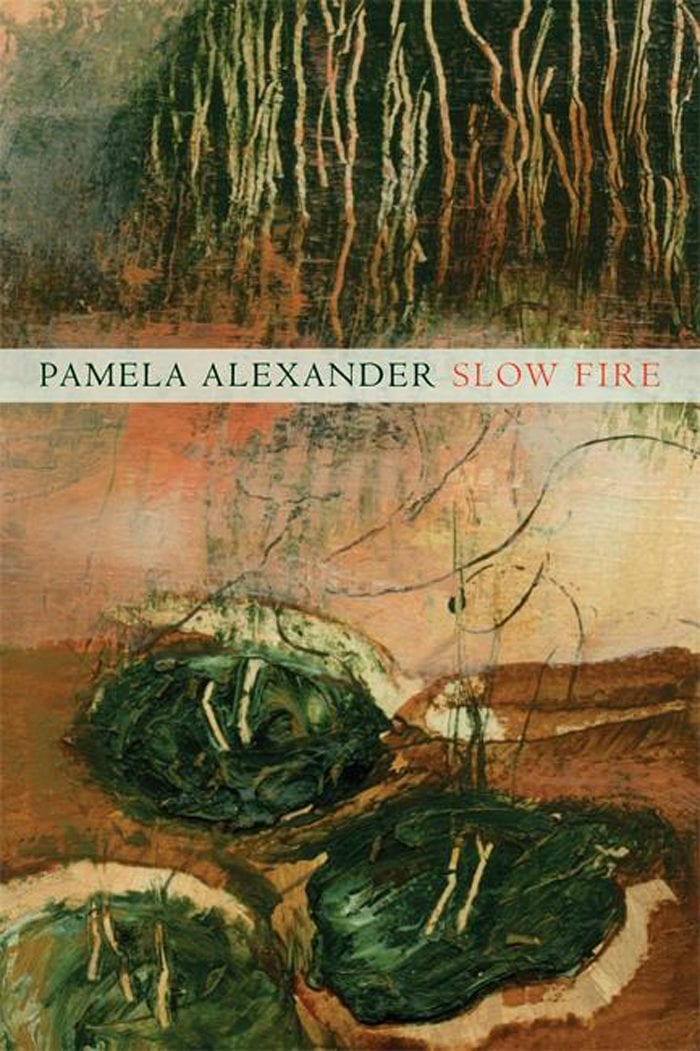
“The poems in Slow Fire are filled with a profound dialogue with the rain, earth, and American culture; they command the reader to dig deep inside our own lives to face our gains, losses and fears. Alexander writes with jolted precision of many things and reminds us that we simply cannot live in a community of one… [T]his poet is blessed.” —B.L. Kennedy, B.L’s Drive-By
ISBN: 9781931337342
Format: Paperback
Reviews
“She is the soul of a Walden-ish total immersion in nature in Ontario, Canada and Ohio, finding inner peace and sanity and leaving the contemporary world behind as much as possible, becoming the un-peopled world around her, although the people-world still keeps haunting her thoughts—which makes her escaping even more meaningful.” —Small Press Review
“In her astonishingly original fourth book, Pamela Alexander continues the exploration of the earth and its elements begun in… Navigable Waterways [for which she was awarded The Yale Series of Younger Poets Prize]. The fire of the title is most explicitly the body’s ‘slow burn, cell-fire,’ but the book itself burns with an urgency that is both expansive and deep. Packed with linguistic delights and surprises that leave no room for the reading mind to go slack, the book begins with grief and moves through a wide range of human emotion that includes genuinely witty responses to love both lost and found, exploration and deliberate disorientation of the personal and linguistic self, and outrage at the materialism of American culture.” —Martha Collins
